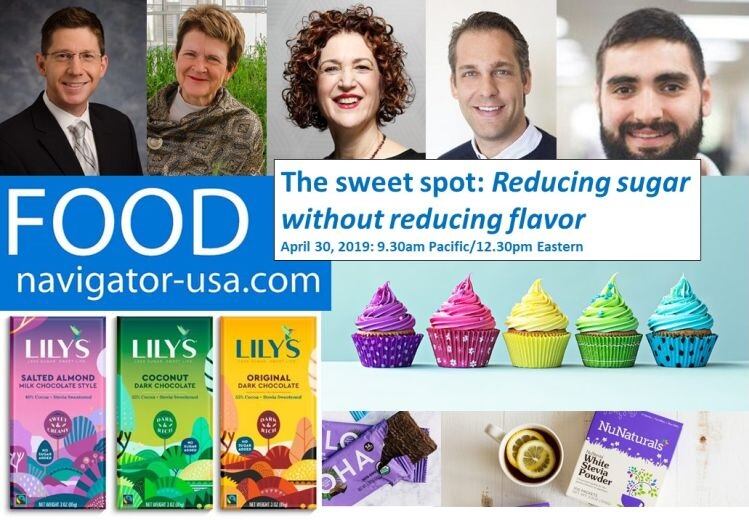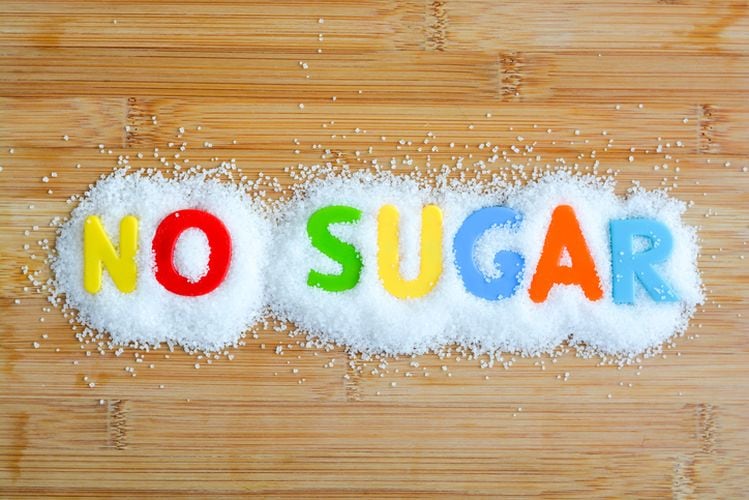“Perceptions do not always line up with scientific reality,” but they do influence industry action, including the current push to reduce sugar – especially added sugar – in the collective diet, Kris Sollid, senior director of nutrition communications with the International Food Information Council, added during our online forum The Sweet Spot: Reducing Sugar without Reducing Flavor.
“This won’t come as a big surprise about sugar, but most people don’t hold a positive view about added sugar. In fact, about a third of consumers say their opinion of added sugars has become more negative in the past year,” based on data collected by IFIC between 2017 and 2018 for its annual Food and Health Survey, Sollid said.
“The main concern that we see people have with sugar is the belief that it influences body weight more than just about anything else we eat. But it is not just sugar we see this with. We hear this about carbohydrates generally as well. And when it comes to body weight, consumers say that those sugars and carbohydrates are the most likely calorie source of weight gain,” he added.
Are excessive calories the culprit and not sugar?
And while the collective effort to reduce sugar in the American diet comes with health benefits, it also could hide a larger root cause of the ongoing obesity epidemic, added Julie Miller Jones, a professor emerita of Nutrition in the Department of Family, Consumer and Nutrition Sciences.
“The public perception of carbs and sugar is bad, and people do, as Kris said, believe that it is causing excess weight and also a number of other diseases,” she said. “There is just this all around fear about sugar and carbs,” but “what is interesting is that carb intake since 2000 has been going down as has sugar, and tragically we are not losing weight.”
She argues that even though “people are drinking fewer sugar sweetened beverages, what hasn’t gone down is, and what really needs to go down, is total calories. So, that is the problem.”
She also pointed to studies published in peer review journals by “very credible scientists” that show sugar and type 2 diabetes are not related and that the data for making the connection originally “was in fact quite poor.”
“The conclusion of the article is that while excess sugar and calories can promote weight gain, there is no unique diabetogenic effect at the physiological levels,” she said. “What is actually happening, I think, is the fear should be too many calories, but we are not fearing that. We are fearing the sugar instead.”
Sugar reduction efforts hit beverages, frozen desserts the hardest
This potentially misplaced fear of sugar is pushing about two-thirds of consumers to either limit or avoid sugar entirely in their diet, according to IFIC’s research.
“Two more common ways that people are trying to do this is by drinking more water in place of caloric beverages, so those that contain sugars. … And also eliminating specific foods and drinks from their diet completely,” Sollid said.
He added that the categories most often on the chopping block are “what you might expect,” including soft drinks, candy, baked goods and also frozen desserts.
In addition, about 20% of people say they are buying sugar free products, which often contain some type of low-calorie sweetener or sugar alcohol, according to IFIC’s research. Another 20% have switched their drinks of choice from caloric beverages to low- or no-calorie versions, and about 20% say they are using low calorie sweeteners, presumably in the form of packets instead of adding sugar to their foods and beverages, Sollid said.
But, he added, “not everyone is keen on low calorie sugars. More people in our survey … expressed a negative opinion on low-calorie sweeteners than a positive one, and we haven’t seen much of the change in that perspective over the last year.”
He also noted that people are “divided pretty evenly” in terms of their preference for types of sweeteners with 30% saying they don’t add any sweeteners, 40% preferring sugar to low-calorie sweeteners and about 30% preferring low-calorie sweeteners to sugar.
Ultimately, Sollid said, “the motivation to choose a low-calorie sweetener over sugar has to do with the simple fact of consuming less sugar, which in effect helps them consume fewer calories.”
But, Jones added, that while consumers may be cutting back on sugary foods, “they are just replacing the calories with something else. … We are not eating fewer calories unfortunately.”
In the end, both Jones and Sollid urged listeners to help consumers “crowd out” sugary options with healthier options, such as whole foods and grains, including fruit if they still crave something sweet.
If you want to learn more but missed FoodNavigator-USA’s webinar The Sweet Spot: Reducing Sugar without Reducing Flavor, you can listen to it on demand as well as download information from our sponsors on how to meet consumer demand for sweets with fewer calories by clicking HERE.




